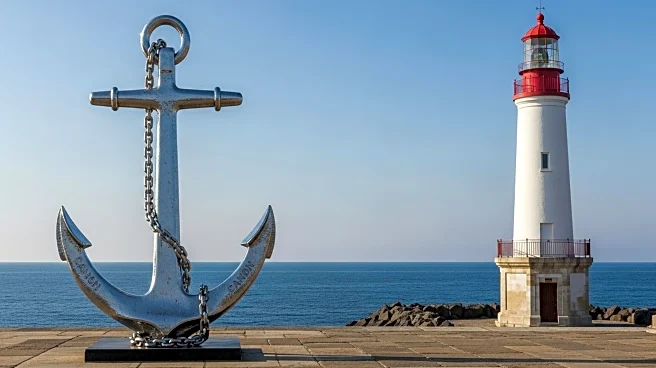What's Happening?
The Offshore Marine Services Association (OMSA) has proposed a significant deregulation of U.S. Coast Guard type approval requirements for shipboard safety gear. OMSA argues that the current approval process is redundant, as equipment is already independently tested and certified. The association suggests that eliminating these regulations would streamline operations, reduce costs, and maintain safety standards. OMSA highlights the example of inflatable liferafts, where the Coast Guard's type approval process duplicates existing ISO requirements, adding unnecessary costs and delays for manufacturers.
Why It's Important?
This proposal aligns with broader deregulation efforts and could have substantial implications for the maritime industry. By reducing regulatory burdens, the industry could see increased efficiency and cost savings, potentially boosting competitiveness. However, there are concerns about maintaining safety standards without the Coast Guard's oversight. The proposal could lead to a shift in how safety equipment is certified and used on U.S.-flagged vessels, impacting manufacturers, shipowners, and regulatory bodies.
Beyond the Headlines
The debate over type approvals touches on broader issues of regulatory efficiency versus safety assurance. While OMSA argues for streamlined processes, the potential risks of reduced oversight must be carefully considered. The outcome of this proposal could influence regulatory practices across other industries, highlighting the balance between innovation and safety.









